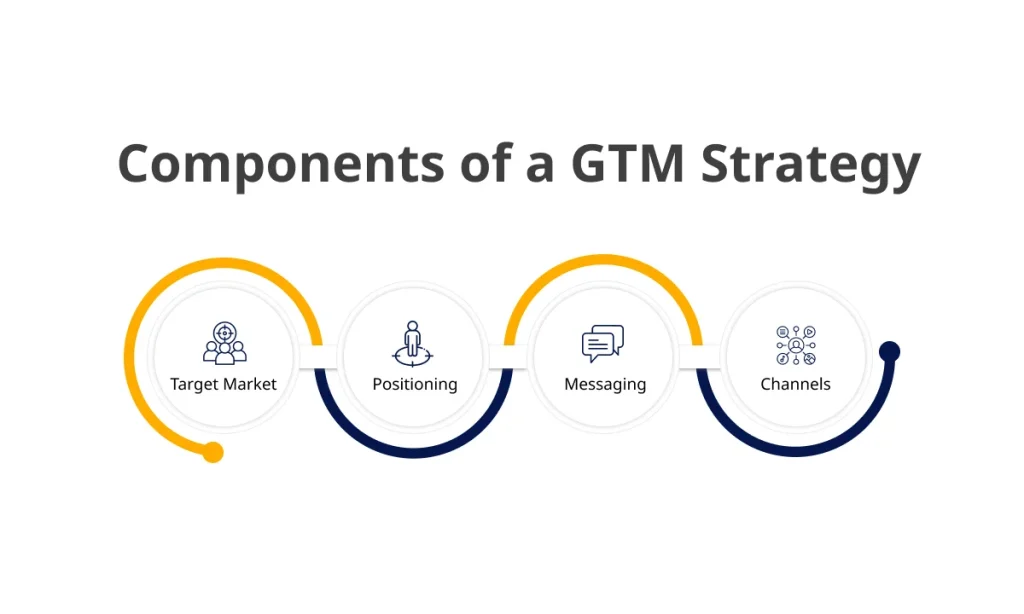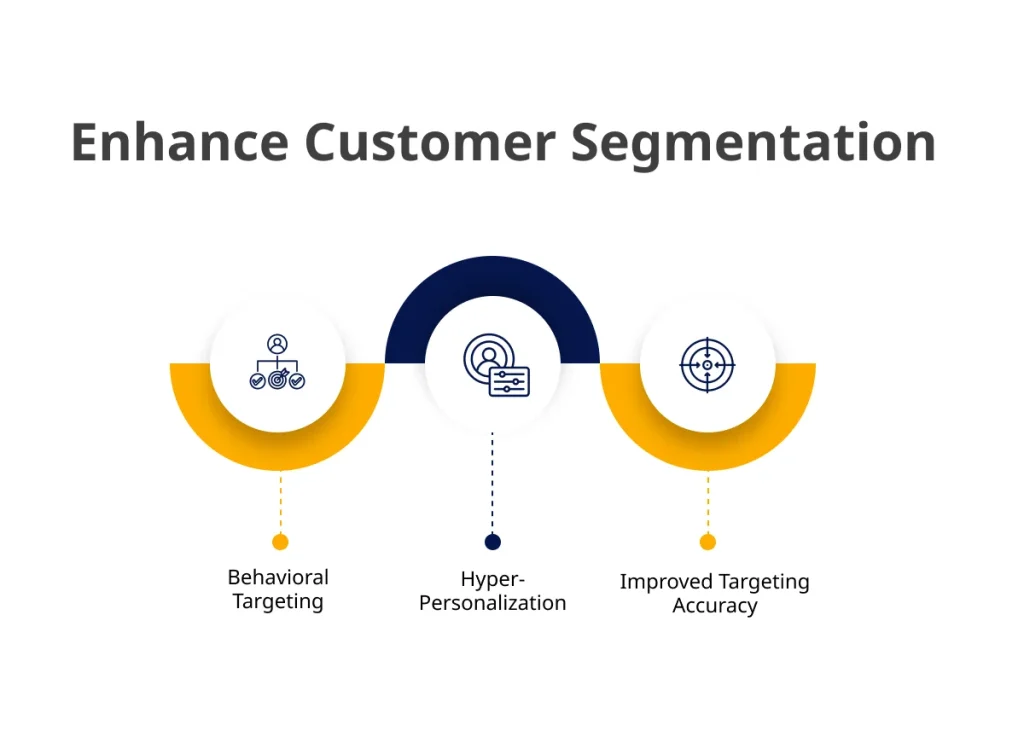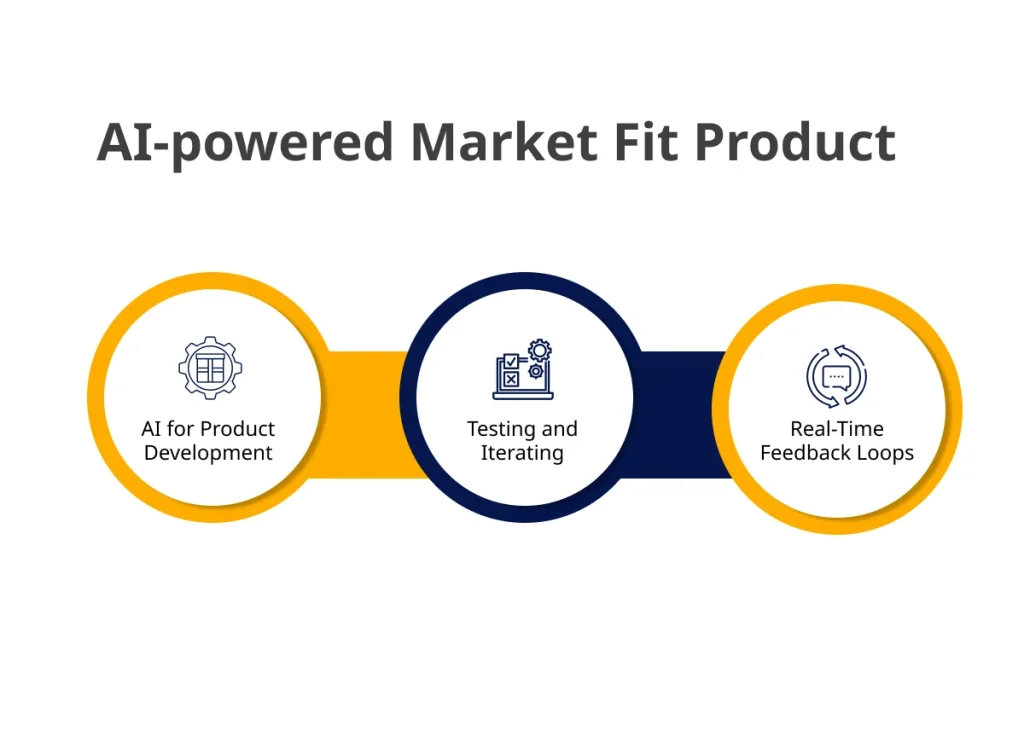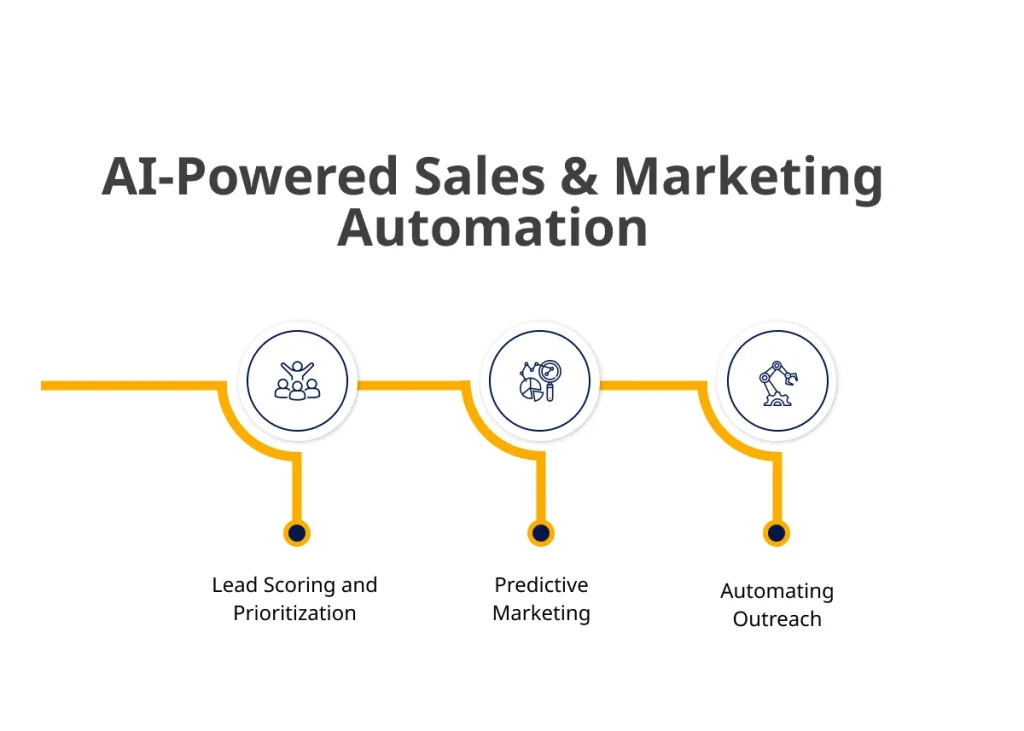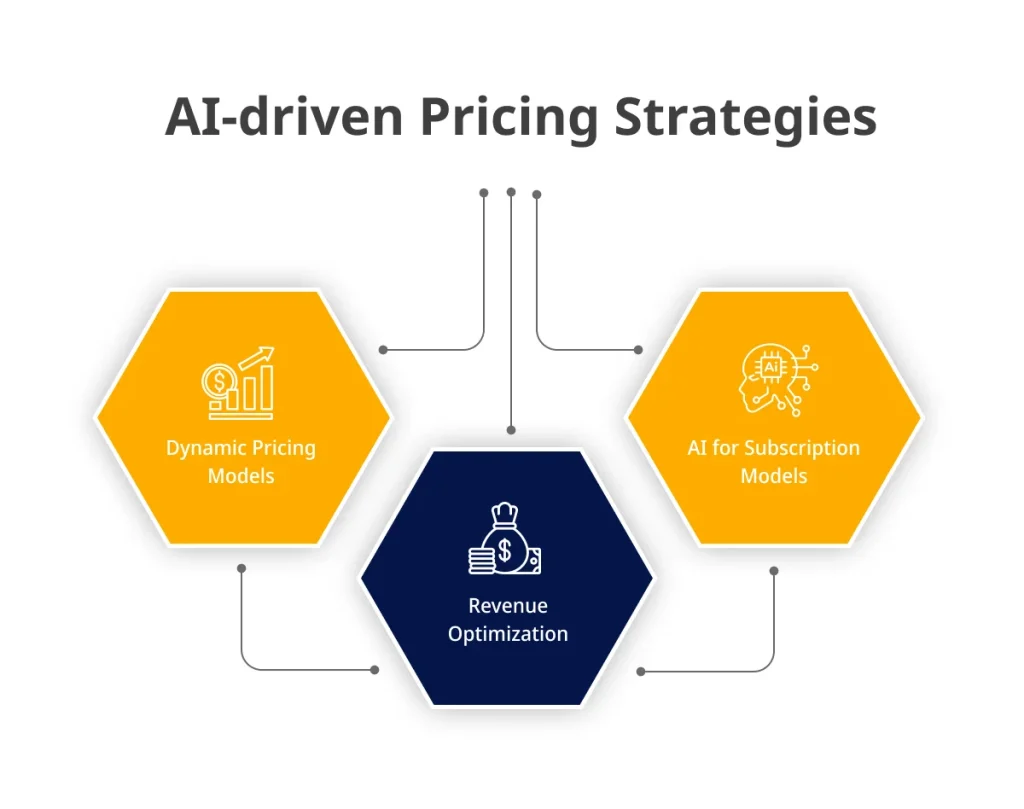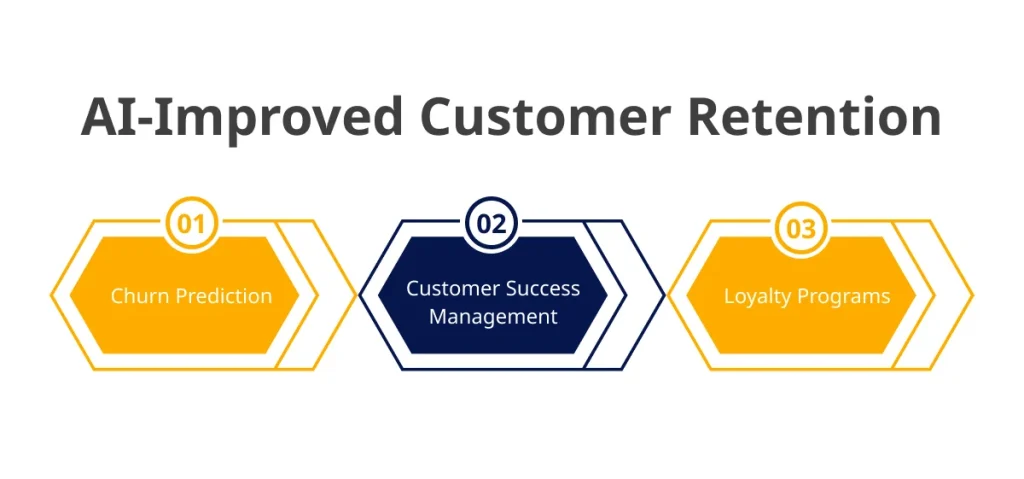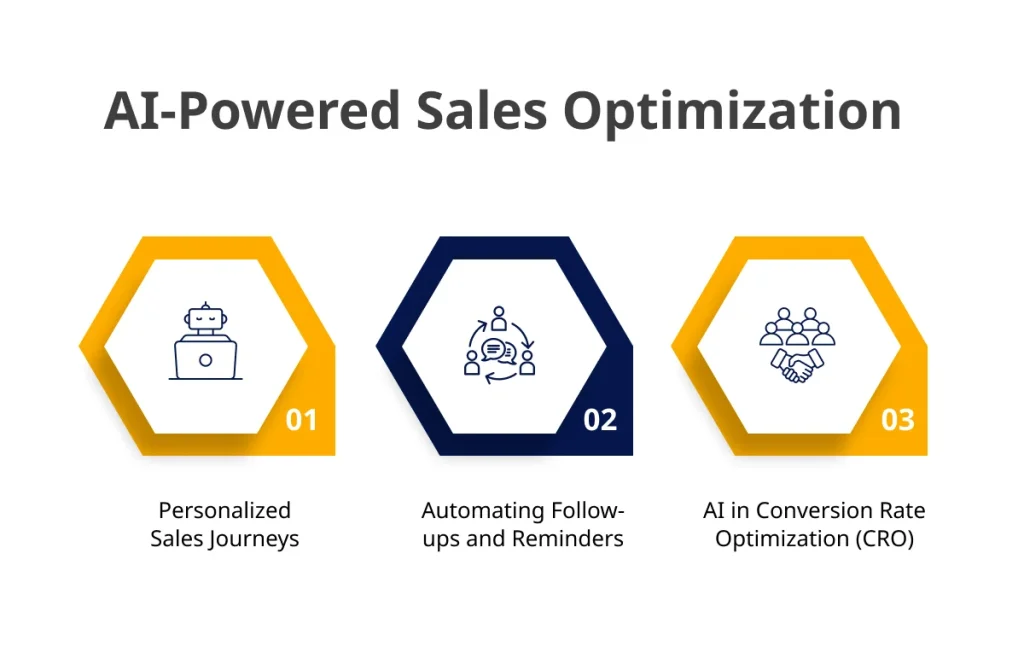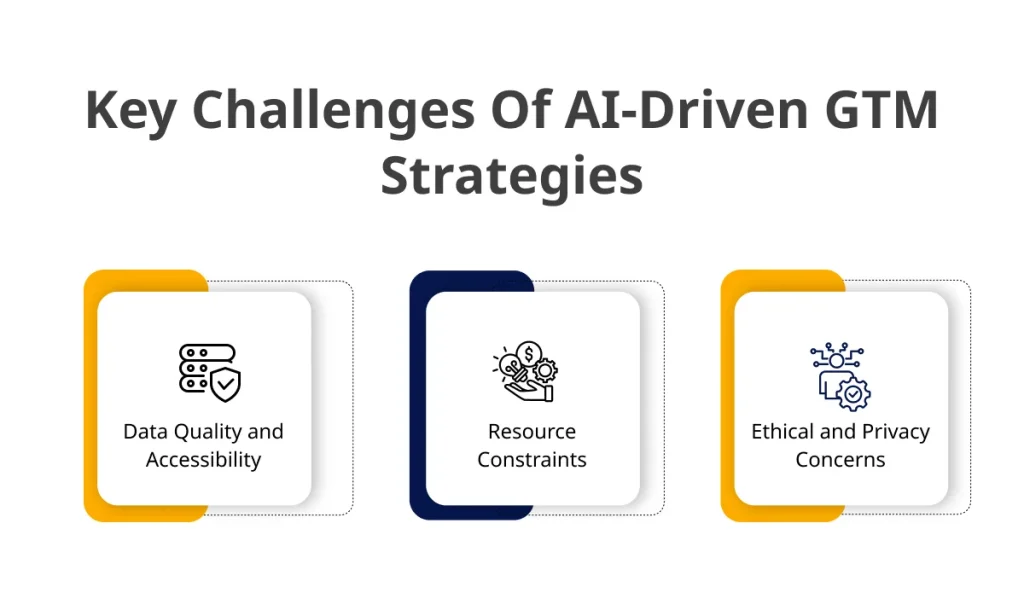Close to 86% of 1,000 startup owners saw positive outcomes from using Artificial Intelligence to create their Go-to-market Strategies – as per the Hubspot report.
Every startup needs a well-defined Go-To-Market strategy to remain competitive and attract growth. Artificial intelligence has totally changed the way startups create and implement GTM strategies.
Data, marketing, and engagement – these are some of the areas where AI goes beyond the ordinary and empowers startups to market themselves more effectively.
Let us look at how AI-powered GTM strategies help startups stay relevant in the ever-evolving digital landscape.
Understanding Go-To Market Techniques In A Broader Context
A Go-To-Market strategy can be defined as a roadmap for how an AI services company will launch and promote a product or service and further its target audience. It helps accomplish a seamless transition from startup product development offerings to commercial sales.
The various key components of a GTM strategy for startups include:
- Target Market: Identifying the specific audience segments most likely to benefit from the product.
- Positioning: Define how the product stands out from competitors and its unique value.
- Messaging: Clear and compelling communication to convey the market benefits of your product in solving customer pain points.
- Channels: Choosing the most relevant platforms and methods for reaching their audience (digital, in-person, partnerships, etc.).
It has been observed that startups are often unable to create successful GTM strategies due to:
- Limited resources
- Inability to understand customer needs
- Fast-changing competitive landscape
Artificial intelligence, coupled with data-driven insights and more efficient processes, can make a big difference.
Also Read –AI-Powered Future: Revolutionizing Businesses with Tools Like ChatGPT
The Role of AI in Startups
Artificial Intelligence is strongly influencing the operations and strategizing process of startups. Key AI technologies such as data analytics, machine learning, and natural language processing are more accessible and improved than before.
- Machine learning helps predict market trends.
- Data analytics provides deep insights into customer behavior.
- Natural language processing allows startups to improve customer interactions.
AI, ML, NLP, and Data Analytics are empowering startups to:
- Streamline operations
- Make informed decisions
- Optimize their go-to-market strategies
Boost engagement by tailoring interactions using AI. Let's customize your customer journey together.
Key Elements in AI-Driven GTM Strategies
Here is how startups can implement the following elements using AI-driven GTM strategies:
1. Enhanced Customer Segmentation With AI
AI-driven GTM strategies help startups target potential customers by providing enhanced customer segmentation, as discussed below:
1. Behavioral Targeting
Traditional segmentation relies on demographic factors like age, gender, or location; AI adds more value by analyzing customer behavior.
AI group users based on the following factors:
- Online activities
- Purchase patterns
- Engagement levels
It allows startups to tailor their marketing strategies to behavior-driven insights.
Also Read – Integrating AI and Machine Learning into Business Operations
2. Hyper-Personalization
Startups can customize their marketing messages and target the buyers at individual levels using artificial intelligence.
AI analyzes real-time data to deliver hyper-personalized experiences that match each customer’s preferences, increasing the chances of conversion.
3. Improved Targeting Accuracy
Startups benefit from AI’s ability to refine audience segmentation. By quickly processing vast amounts of data, AI identifies the most relevant customer segments.
AI-driven GTM strategies allow startups to focus on the following aspects:
- Highest potential leads
- More precise marketing approaches
- Efficient resource use
- Better ROI
2. Optimizing Product-Market Fit with AI
AI solution for IT allows startups to be more agile and precise in shaping their products to meet evolving market expectations.
1. AI for Product Development
By analyzing vast amounts of customer data, AI tools help startups identify the following aspects that resonate with target audiences:
- Gaps in the market
- Uncover unmet needs
- Develop product features
2. Testing and Iterating
AI-powered A/B testing allows startups to experiment with different versions of their products or marketing campaigns in a short time span. This enables rapid iterations and refines the product to align with customer preferences.
3. Real-Time Feedback Loops
With AI, startups can collect insights into real-time user behavior and market trends. This data-driven feedback allows for immediate adjustments to product strategies. This also ensures a closer alignment with market demands.
Utilize our AI-powered analytics to avoid costly GTM mistakes.
3. AI in Sales & Marketing Automation
Startups can enhance their go-to-market strategies by implementing AI in sales and marketing automation. Here’s how:
1. Lead Scoring & Prioritization
Artificial Intelligence analyzes customer data and scores the leads based on their conversion probability. This helps the sales team work more efficiently by investing time on high-potential prospects.
2. Predictive Marketing
AI predicts the optimal time and channels to engage with prospects. This helps marketers create more personalized and targeted campaigns. By analyzing customer behavior, AI suggests the most effective strategies for engagement.
3. Automating Outreach
AI-driven tools like chatbots and automated email marketing systems streamline communication with prospects. These tools help maintain timely, consistent interactions while freeing up resources for higher-value tasks.
Our AI experts help refine your approach to better target and engage customers.
4. Pricing Strategies Powered by AI
AI-driven GTM strategies help startups in defining different pricing models that AI powers. Here’s how:
1. Dynamic Pricing Models
AI enables startups to implement dynamic pricing, where prices adjust in real-time based on factors such as follows:
- Demand fluctuations
- Competitor pricing
- Customer behavior
By constantly analyzing market conditions, AI ensures that prices remain competitive and aligned with customer willingness to pay, thus, optimizing revenue without manual intervention.
2. Revenue Optimization
AI tools analyze historical pricing data and customer purchasing patterns to determine price elasticity. This helps startups understand how price changes affect demand.
This also allows them to set optimal prices that maximize profitability while minimizing lost sales opportunities.
3. AI for Subscription Models
AI can tailor pricing strategies for SaaS and subscription-based businesses by analyzing the following aspects:
- User behavior
- Engagement metrics
- Customer lifetime value
AI-driven insights help startups create tiered pricing, identify the most valuable subscription features, and offer personalized pricing plans that align with customer preferences and usage patterns, boosting customer retention and revenue growth.
We help you integrate AI-driven tools to refine and optimize GTM execution.
5. Improving Customer Retention with AI
AI impact on GTM strategies help startups improve customer retention by using various practices as listed below:
1. Churn Prediction
AI is crucial in identifying early signs of customer churn by analyzing the following aspects:
- Customer behavior
- Engagement patterns
- Transaction history
AI spots at-risk customers and suggests retention strategies like personalized offerings or communications to re-engage those customers. This can help greatly in reducing churn rates.
2. Customer Success Management
AI provides insights into customers’ needs and preferences, helping startups deliver better support and experiences.
AI-powered tools are capable of:
- Sending personalized recommendations
- Automating support responses
- Ensuring timely assistance to customers
- Loyalty Programs
All these result in an improved customer satisfaction experience and a better relationship in the long run.
Artificial intelligence can help in giving rewards and incentives to the customers by analyzing their purchase history and engagement data. It also helps in optimizing the structure of these programs to increase the customer lifetime value.
Also Read – How Artificial Intelligence Is Redefining Success Of Digital Transformation Strategies?
6. AI in Sales Funnel Optimization
AI-driven GTM strategies can help startups optimize their sales funnels and drive more successful outcomes. Here’s how:
1. Personalized Sales Journeys
AI-powered tools help startups customize and optimize the journey of every customer throughout the sales funnel.
Having a clear idea of the preferences and behavior of customers, businesses can deliver personalized content that has higher chances of conversion.
2. Automating Follow-ups and Reminders
AI can streamline post-purchase engagement by automating follow-up emails, reminders, and notifications.
This reduces the need for manual intervention, ensures timely communication, and encourages repeat business.
3. Conversion Rate Optimization
Startups can use AI to analyze performance data across the sales channels and highlight the areas of improvement.
AI identifies the most effective strategies, enabling companies to adjust campaigns in real-time and maximize conversion rates.
By using AI to refine each sales funnel stage, startups can create more efficient, personalized, and impactful customer experiences, leading to higher conversion rates and stronger sales outcomes.
We help you integrate AI-driven tools to refine and optimize GTM execution.
Steps to Implement AI in GTM Strategy For Startups
Implementing AI effectively can revolutionize your GTM efforts, making your business stay competitive and achieve sustainable growth.
You must follow these steps to seamlessly implement AI in your processes:
1. Evaluate Your Current GTM Strategy
Analyze your existing strategy to pinpoint areas where AI can make the most impact. Focus on improving efficiency, scalability, and personalization in sales, marketing, or customer engagement.
2. Choose the Right AI Tools
Research AI solutions tailored to your GTM goals. Look into tools for sales automation, marketing personalization, customer support, and analytics. Start with platforms like Copy.ai for comprehensive AI integration and evaluate each tool based on features, ease of use, and ROI.
3. Integrate AI into GTM Processes
After selecting tools, incorporate them into your workflow:
- Train your sales team with AI for lead scoring and personalized outreach.
- Use AI chatbots in customer support and lead qualification.
- Launch AI-driven marketing campaigns for precise targeting and optimized ad spend.
- Use AI analytics for deeper insights into customer behavior and preferences.
- Ensure your team understands how AI enhances their roles and training.
4. Monitor and Refine
Monitor the performance of your AI tools in terms of conversion rates, customer satisfaction, and revenue. Use these insights to adjust and optimize your strategy for continuous improvement.
Minimize risks and maximize ROI with our cutting-edge AI solutions.
Challenges of Implementing AI in GTM Strategies
Implementing AI in go-to-market strategies presents several challenges to startups, as discussed below.
Addressing these challenges is imperative for startups looking forward to fully leveraging the potential of AI and change their GTM strategy for good.
1. Data Quality and Accessibility
Startups generally need help with data fragmentation, inconsistent format, or lack of actionability, which is problematic for AI in achieving the correct strategic decisions.
2. Resource Constraints
Startups have limited budget, so integrating AI technology can be a costly affair (especially for early-stage startups).
Startups must balance investment in AI with other critical business needs.
3. Ethical & Privacy Concerns
AI-driven strategies would require the collection and processing of large volumes of customer data, which creates issues with ethical data privacy and security.
Future Trends
Innovations in the field of AI such as deep learning, generational AI, and reinforcement learning are expected to transform the GTM strategies further. These technologies will enable startups to:
- Generate more accurate predictions
- Automate decision-making processes
- Create personalized customer experiences
Startups can expect to optimize each stage of their GTM approach through:
- AI-driven tools for predictive analytics
- Conversational AI (such as advanced chatbots)
- AI-powered sales assistants
In the coming years:
- Startups will likely adopt more agile and data-driven approaches to remain competitive.
- They will use AI-driven GTM strategies to refine marketing, pricing, and customer retention efforts.
- AI will enable greater scalability to help startups quickly respond to changing market demands.
- AI-driven strategies will push startups to be more dynamic and responsive in future markets.
Conclusion
As AI continues to innovate the business landscape, startups have a unique opportunity to use its power to redefine their go-to-market strategies.
By utilizing AI for data-driven insights, predictive modeling, and personalized customer engagement, startups can navigate the complexities of launching in a competitive market with greater precision and agility.
The key to startup success is using AI for more thoughtful and faster decision-making. This allows startup owners to focus on innovation. You may hire AI engineers to attain business growth at a rapid rate.
You may also contact us at ValueCoders (one of the top AI development firms in India). We help our clients, especially startups, define strong GTM strategies with Stable diffusion, Python, Tensorflow, GPT-4, and more.


